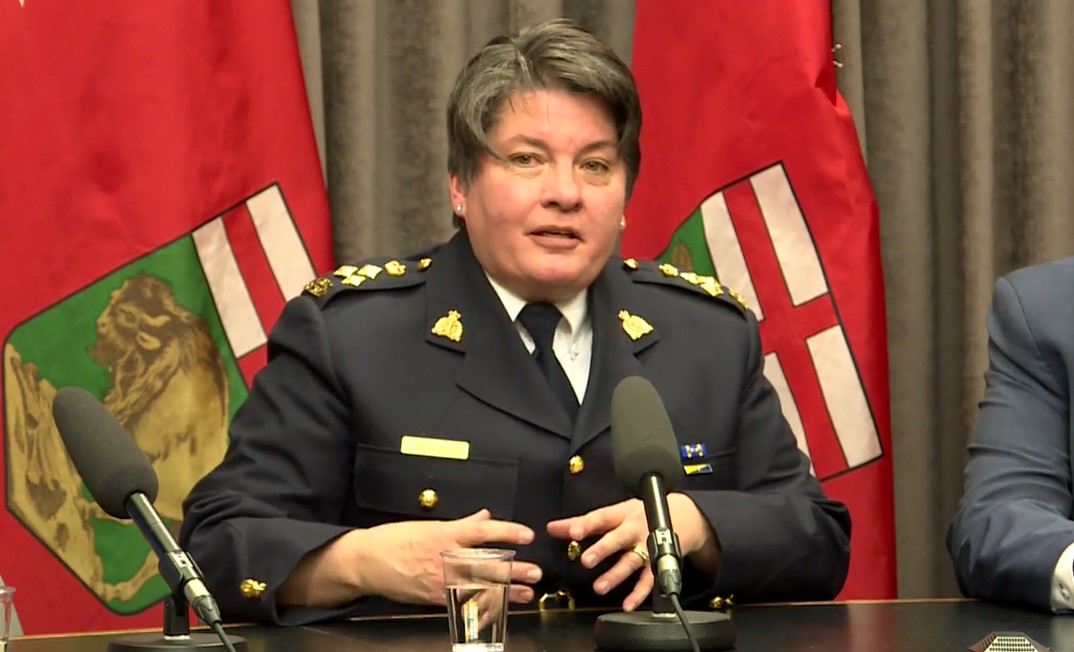The assistant commissioner for the RCMP in Manitoba says people may notice a slight change in how they interact with officers due to the novel coronavirus pandemic.

Jane MacLatchy says officers will continue to patrol communities, respond to calls and investigate criminal activity.
But she is asking that people call ahead rather than visiting a detachment if a matter isn’t urgent.
“This is a challenging time for so many within our province, across the country and around the world,” MacLatchy said in a statement.
“The emergence and spread of COVID-19 has affected every facet of daily life and changed how organizations, including the Manitoba RCMP, carry out their work and interact with the public.”
MacLatchy said emergencies should still be called in to 911 or your local emergency number, but callers should expect to be asked additional questions about their health.
“This is to ensure that officers can take appropriate safety precautions,” she explained.
“When our officers respond, you may see them wearing personal protective equipment such as a face mask. This is for your safety and that of our police officers.”
MacLatchy says the force is planning for critical policing services no matter what the circumstances.
“Every single one of our officers remains committed to your security during these difficult times. However, to truly get through this, we will all need to work together,” she said.
“These are truly unprecedented times but rest assured that the Manitoba RCMP will always be here for you and for your communities.”
–With files from The Canadian Press

Questions about COVID-19? Here are some things you need to know:
Health officials say the risk is low for Canadians but warn this could change quickly. They caution against all international travel. Returning travellers are asked to self-isolate for 14 days in case they develop symptoms and to prevent spreading the virus to others.
Symptoms can include fever, cough and difficulty breathing — very similar to a cold or flu. Some people can develop a more severe illness. People most at risk of this include older adults and people with severe chronic medical conditions like heart, lung or kidney disease. If you develop symptoms, contact public health authorities.
To prevent the virus from spreading, experts recommend frequent handwashing and coughing into your sleeve. And if you get sick, stay at home.
For full COVID-19 coverage from Global News, click here.
- Canada’s most wanted list: Toronto suspect in fatal shooting at No. 1
- Gas station clerk stabbed several times during violent attack at Ultramar in Montreal
- Man acquitted in Tina Fontaine murder found dead, says her aunt
- Canadians should expect politicians to support right to bail, Virani’s office says





Comments